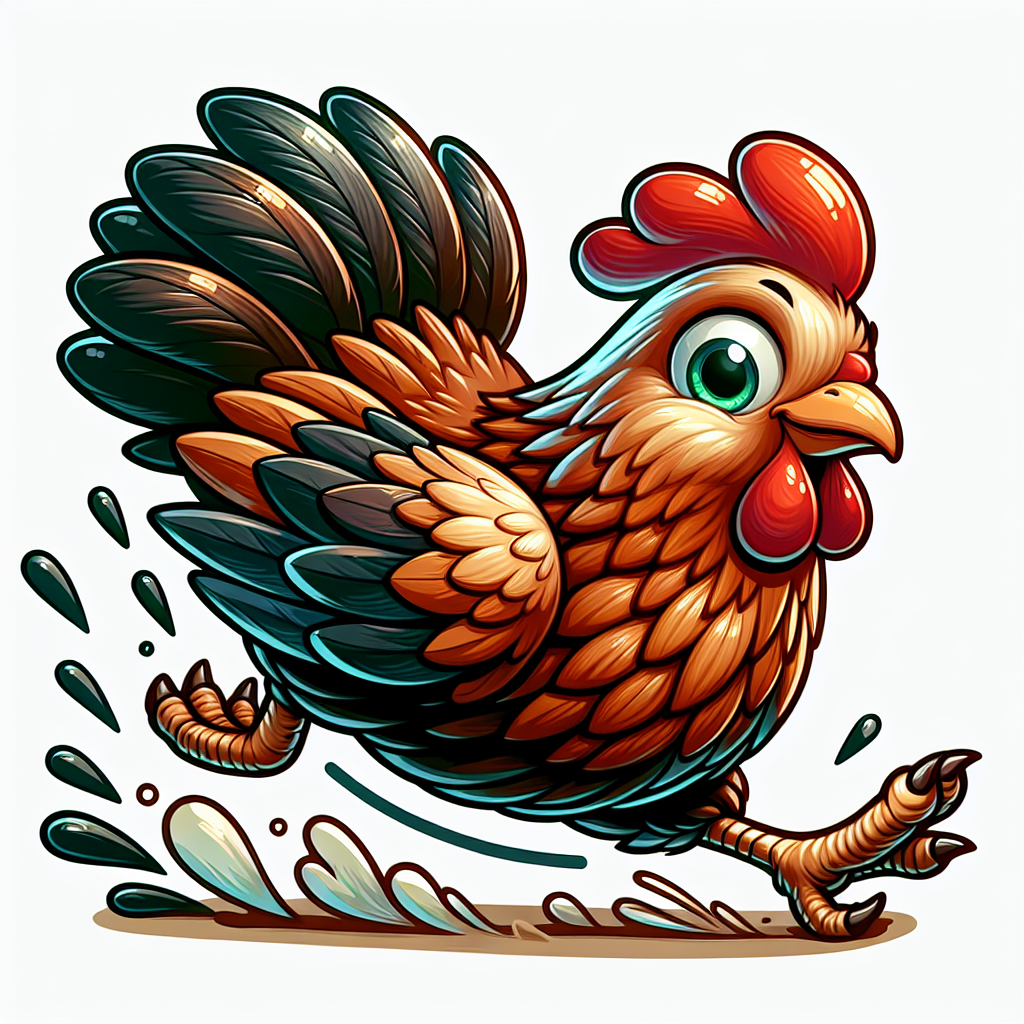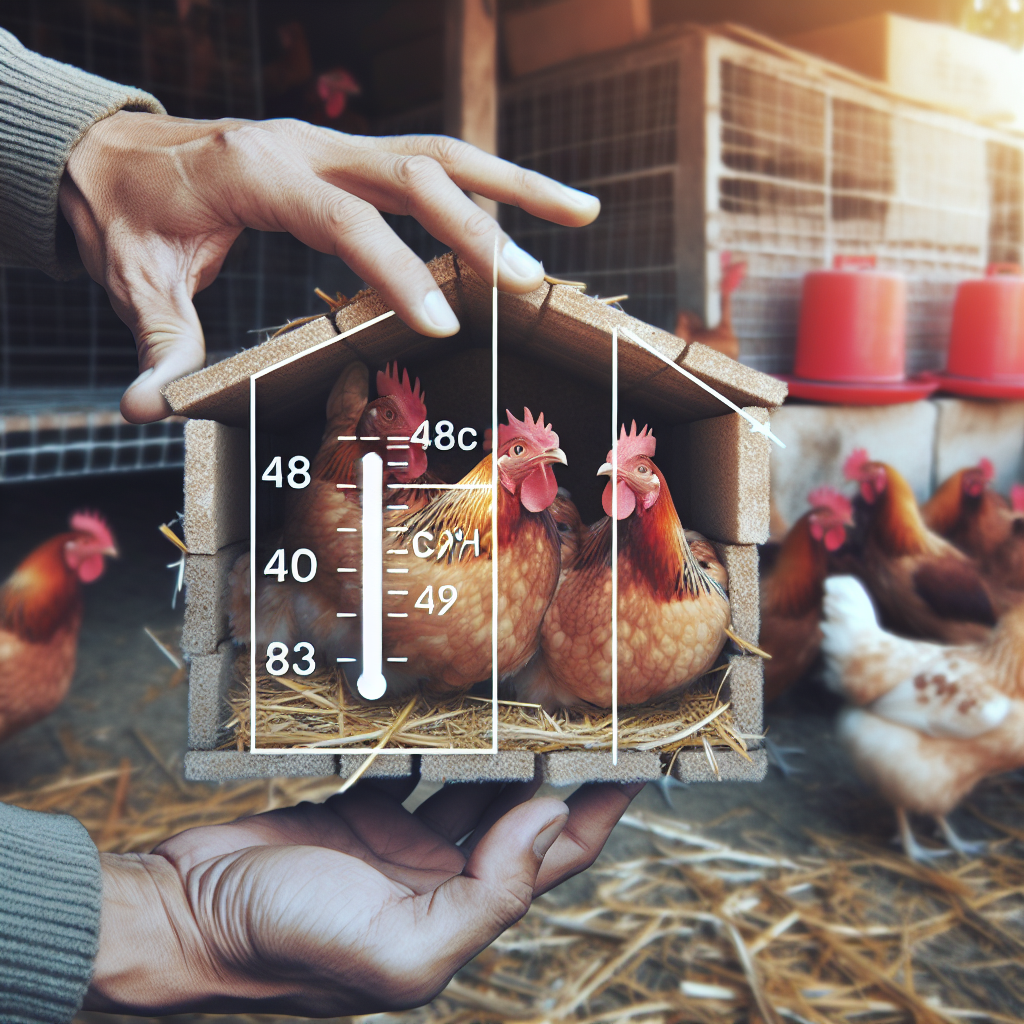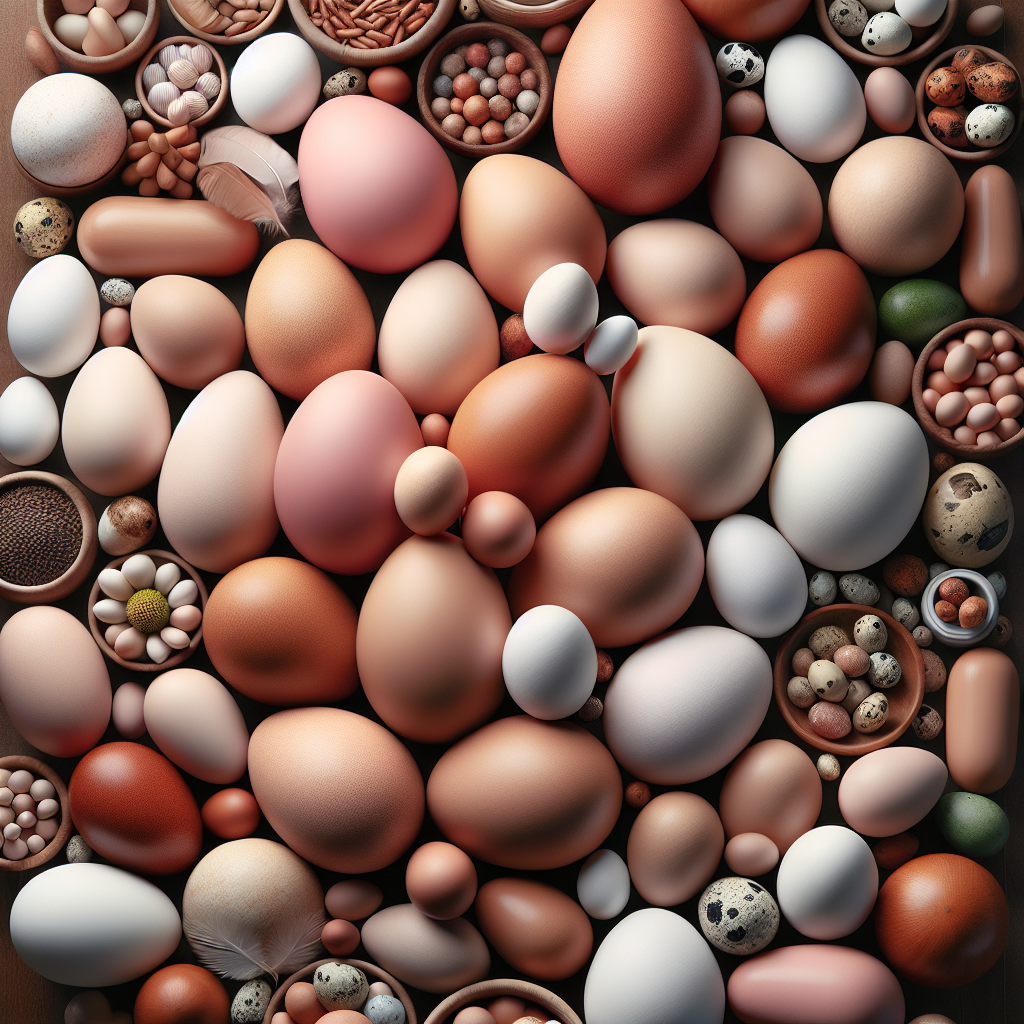Have you ever wondered how to tell if a chicken is truly happy and healthy? Well, look no further! In this article, we will explore the telltale signs of a contented and thriving chicken. From their vibrant feathers to their energetic behavior, you will discover the key indicators that indicate a happy and healthy feathered friend. So grab a seat, and let’s dive into the wonderful world of chicken well-being!
Physical Signs
Energetic Behavior
A happy and healthy chicken will exhibit energetic behavior. They will engage in active movements such as walking, running, and exploring their surroundings. You will notice them scratch the ground, flap their wings, and engage in play-like behaviors. These energetic behaviors indicate that they are in good physical health and enjoying their environment.
Healthy Feathers
Another physical sign of a happy and healthy chicken is having a vibrant and well-maintained plumage. Their feathers should be clean, smooth, and glossy. Any signs of dullness, ruffled feathers, or bald spots may indicate underlying health issues or stress. Regular preening and a good diet contribute to healthy feather growth.
Bright Eyes
The eyes of a happy and healthy chicken should be bright, clear, and free from any discharge or swelling. They should exhibit a sense of curiosity and alertness, actively observing their surroundings. Dull or droopy eyes can be an indication of illness or discomfort.
Clean Vent
A clean vent is a good indicator of a healthy chicken. The vent, located beneath the tail, is where waste is expelled. A happy and healthy chicken will have a clean vent that is free from any signs of diarrhea or abnormal discharge. It is important to regularly check the vent area for signs of infection or parasite infestation.
Active Legs
Healthy and happy chickens have strong and active legs. They should be able to walk and run without any difficulties or limping. Observe their movements and ensure that their legs are not swollen, discolored, or showing signs of injury or infection. An active and sturdy leg structure is essential for a chicken’s mobility and overall well-being.
Good Appetite
A chicken with a good appetite is a content and healthy chicken. They should readily eat their regular feed and show enthusiasm for treats or foraging opportunities. Lack of appetite or significant changes in eating patterns can be a sign of underlying health issues. Monitoring their eating habits is essential to ensure they are receiving proper nutrition.
Social Signs
Active Interaction
A happy and healthy chicken will actively interact with their flock mates and their environment. They will engage in activities such as preening each other, pecking at the ground together, and engaging in social behaviors. Chickens are social animals, and active interaction with their flock is indicative of a positive social dynamic and overall well-being.
Peaceful Coexistence
A peaceful coexistence within the flock is crucial for a chicken’s happiness and health. A happy and healthy chicken will display harmonious behavior and avoid unnecessary aggression or dominance. They will engage in friendly interactions, share resources, and maintain a stable hierarchy. A peaceful flock environment contributes to reduced stress levels and a positive social atmosphere.
Content Vocalizations
Chickens communicate through various vocalizations, and a happy and healthy chicken will exhibit content vocalizations. They will produce cheerful clucks, coos, and chirps, especially during feeding or when comfortable in their surroundings. These vocalizations indicate that they feel safe, content, and connected with their flock members and environment.
Comfortable Body Language
Observing a chicken’s body language can provide valuable insights into their overall well-being. A happy and healthy chicken will have a relaxed posture, with wings slightly away from the body and feathers lying smoothly. They will display a confident and alert stance, with no signs of tension, aggression, or fear. Pay attention to the way they hold themselves and interact with their environment to gauge their comfort levels.
Environmental Signs
Clean and Spacious Living Area
Providing a clean and spacious living area is essential for a chicken’s happiness and health. A well-maintained coop and run area will be free from excessive feces, debris, and dust. Regular cleaning and proper ventilation are crucial to prevent the buildup of harmful bacteria and maintain optimal air quality. A clean and spacious living environment allows chickens to engage in natural behaviors and reduces the risk of diseases.
Access to Fresh Water
Access to fresh and clean water is vital for a happy and healthy chicken. They should have a constant supply of fresh drinking water available throughout the day. Regularly check the water containers to ensure they are clean, free from algae, and filled with an adequate amount of water. Dehydration can lead to serious health issues, so monitoring their water intake is essential.
Proper Ventilation
Proper ventilation is crucial for maintaining a healthy living environment for chickens. Good air circulation helps remove excess heat, moisture, and harmful gases, such as ammonia, from the coop. Adequate ventilation prevents the buildup of harmful bacteria, mold, and mildew, reducing the risk of respiratory illnesses. Ensure that the coop has well-placed vents or windows for optimal airflow.
Protection from Extreme Weather Conditions
A happy and healthy chicken requires protection from extreme weather conditions. They should have access to shade and shelter to avoid direct exposure to harsh sunlight or heavy rainfall. Their living area should provide adequate insulation during colder months to prevent drafts and maintain a comfortable temperature. Protecting chickens from extreme weather conditions ensures their physical well-being and overall happiness.
Low Stress Levels
Relaxed Body Posture
A relaxed body posture is an important indicator of a chicken’s low stress levels. A happy and healthy chicken will have a relaxed stance, with their feathers lying smoothly, wings slightly away from the body, and head held high. Tensed muscles, raised feathers, or a lowered head can be signs of stress or discomfort.
Absence of Aggressive Behavior
Aggression within the flock is a clear sign of stress or social imbalance. A happy and healthy chicken will not engage in aggressive behaviors such as feather pecking, bullying, or aggressive posturing. They will coexist peacefully with their flock members and avoid unnecessary confrontations. A lack of aggression indicates a positive social environment and reduced stress levels.
Minimal Feather Pecking
Feather pecking is a behavior that can be seen in chickens, but a happy and healthy chicken will exhibit minimal to no feather pecking. Excessive feather pecking can be a sign of stress, boredom, or nutritional deficiencies. Observing their behavior and ensuring they have adequate stimulation and a well-balanced diet can help minimize this behavior.
Lack of Fearful Reactions
A happy and healthy chicken will have minimal or no fearful reactions to routine activities or human interactions. They will approach new situations with curiosity and confidence. Avoiding sudden loud noises or aggressive movements around chickens will contribute to their reduced stress levels. A lack of fearful reactions indicates a sense of security and trust in their environment.
Regularly Dust Bathing
Dust bathing is a natural behavior for chickens, and a happy and healthy chicken will engage in regular dust bathing. They will actively scratch the ground, create dust pits, and roll or flap in the dust. Dust bathing helps keep their feathers clean, remove parasites, and provides mental and physical relaxation. Encouraging dust bathing by providing a suitable area promotes their well-being.
Healthy Reproductive Functions
Regular Egg Laying
A healthy and happy chicken will have regular and consistent egg laying. They will produce eggs at expected intervals, which varies depending on the breed and age. Normal egg laying patterns indicate a well-functioning reproductive system and hormonal balance. Any sudden or prolonged changes in egg laying should be monitored, as it may indicate health issues.
Strong Eggshells
Happy and healthy chickens will lay eggs with strong and intact eggshells. The eggshells should be firm, smooth, and have a consistent color. Weak or brittle eggshells can be a sign of nutritional deficiencies, calcium imbalances, or underlying health issues. Providing a well-balanced diet rich in calcium is important for the development of strong eggshells.
Normal Broodiness Behavior
Broodiness is a natural behavior in chickens where they develop a strong desire to incubate eggs. A healthy chicken will display normal broodiness behavior and exhibit a strong maternal instinct. They will sit on their eggs, become protective, and show signs of dedication towards hatching chicks. Normal broodiness behavior is a positive sign of reproductive health and contentment.
Growth and Development
Steady Growth Rate
Observing a chicken’s growth rate is vital in monitoring their overall health. A happy and healthy chicken will display a steady growth rate, with consistent weight gain and development. Rapid or stunted growth can be indicators of health issues or improper nutrition. Providing a balanced diet and ensuring they have proper space to move and exercise will support their healthy growth.
Proper Development of Skeletal System
A well-developed skeletal system is crucial for a chicken’s mobility and long-term health. A happy and healthy chicken will exhibit proper skeletal development, with no signs of deformities or issues such as bowed legs. Providing a proper diet rich in essential nutrients, including calcium and vitamin D, supports the development of strong and healthy bones.
Reaching Sexual Maturity at Appropriate Age
Chickens reach sexual maturity at different ages depending on their breed. A happy and healthy chicken will reach sexual maturity at the appropriate age for their breed. Delayed or early sexual maturity can be indicative of underlying health or hormonal imbalances. Consulting breed-specific guidelines and monitoring their growth and development can help ensure they reach sexual maturity at the right time.
Good Overall Body Condition
Correct Body Weight
Maintaining a correct body weight is crucial for a chicken’s overall health and well-being. A happy and healthy chicken will have a well-balanced body weight, neither overweight nor underweight. Regularly monitoring their weight and adjusting their diet accordingly ensures they stay within a healthy range.
No Signs of Lameness
Lameness or difficulty in walking can be a sign of injury, infection, or poor skeletal health. A happy and healthy chicken will exhibit no signs of lameness or limping. They should be able to walk, run, and perch comfortably. Observing their mobility and taking immediate action if any signs of lameness are noticed will contribute to their overall well-being.
Vitality and Good Muscle Tone
A happy and healthy chicken will display vitality and good muscle tone. They will have an active demeanor, strong movements, and well-defined muscles when handling them. Lack of energy, lethargy, or poor muscle tone can be indications of health issues or underlying problems. A well-balanced diet, regular exercise, and a stress-free environment contribute to their vitality and good muscle tone.
Regular Behavioral Patterns
Morning Vocalizations
A happy and healthy chicken will exhibit regular morning vocalizations. They will start the day with cheerful clucks and coos, displaying their contentment and readiness for the day. Regular morning vocalizations indicate a positive mood and well-being.
Foraging and Pecking
Foraging and pecking are natural behaviors for chickens, and a happy and healthy chicken will engage in these activities regularly. They will scratch the ground, peck at insects, plants, and small stones, displaying their natural instincts. Providing opportunities for foraging and pecking promotes mental stimulation and physical exercise.
Dust Bathing Behavior
Dust bathing is an essential behavior for chickens, and a happy and healthy chicken will engage in regular dust bathing. They will actively create dust pits, roll, and flap in the dust, covering their feathers. Dust bathing helps keep their plumage clean, removes parasites, and provides an outlet for relaxation and grooming. Offering a suitable area for dust bathing ensures their well-being.
Roosting at Night
A happy and healthy chicken will display a regular roosting pattern. Chickens are naturally inclined to roost at night, seeking elevated perches for rest and sleep. They will settle on their preferred perches, gather closely with their flock, and exhibit a peaceful and settled demeanor. Roosting at night reflects a sense of security and comfort within their environment.
Resistance to Disease
Shiny and Clean Comb and Wattle
The comb and wattle are fleshy and vibrant parts of a chicken’s head, and a healthy chicken will have shiny and clean comb and wattle. They will display their natural color, which can vary depending on the breed and individual. Any signs of discoloration, swelling, or discharge can be indicative of health issues or infections. Regularly checking the comb and wattle helps monitor their health status.
No Sinusitis or Swollen Eyes
Sinusitis or swollen eyes are signs of respiratory issues in chickens. A happy and healthy chicken will have clear nasal passages and no signs of congestion or inflammation around the eyes. Respiratory issues can be caused by poor ventilation, infections, or exposure to environmental irritants. Monitoring their breathing and observing for any signs of respiratory distress is essential for their well-being.
No Respiratory Issues
A healthy chicken should not exhibit any signs of respiratory issues. They should breathe normally, with no wheezing, coughing, or labored breathing. Respiratory problems can affect their overall health and hamper their ability to thrive. Maintaining a clean living environment with good ventilation is important for preventing respiratory issues.
No Diarrhea or Abnormal Droppings
A happy and healthy chicken will have normal droppings, with a well-formed consistency and no signs of diarrhea. Their feces should have the characteristic black and white components, indicating a balanced diet. Diarrhea or abnormal droppings can be signs of intestinal issues, infections, or improper nutrition. Monitoring their droppings helps detect any changes in their digestive health.
No Signs of Parasites
Parasites such as mites, lice, and worms can significantly impact a chicken’s health and happiness. A happy and healthy chicken will have no visible signs of parasites on their skin, feathers, or in their feces. Regularly inspecting their plumage, skin, and vent area for any signs of parasites helps maintain their well-being. Providing regular parasite prevention measures can also help keep parasites at bay.
Positive Human Interaction
Approaching Humans Confidently
A chicken that approaches humans confidently indicates a positive relationship with their caretakers. A happy and healthy chicken will not shy away or display fearful behavior when approached by humans. They will be curious, friendly, and comfortable in the presence of people. Positive human interaction enhances their socialization and overall well-being.
Enjoyment of being Handled
A happy and healthy chicken will enjoy being handled by their caretaker. They will not display signs of stress, discomfort, or aggression when picked up or held. Instead, they will remain calm, relaxed, and may even seek physical contact. Enjoying being handled indicates a trusting and positive bond between the chicken and their caretaker.
Curiosity Towards People
Curiosity towards people is a sign of a happy and healthy chicken. They will actively investigate their caretakers, approach them with interest, and observe their activities. Chickens with curiosity towards people exhibit a higher level of socialization and are more likely to form positive relationships with humans.
Responding Well to Caretaker
A happy and healthy chicken will respond well to their caretaker’s interactions and care routine. They will show signs of recognition, such as approaching the caretaker when called or responding to familiar cues. Positive responses, such as calmness and contentment, indicate that the chicken feels safe, secure, and well-cared for.
In conclusion, observing the various signs and behaviors discussed above is crucial in determining the overall happiness and health of a chicken. From their physical signs to their social interactions and environmental conditions, it is essential to create an environment that promotes their well-being. Regular monitoring, providing proper nutrition, maintaining a clean living area, and promoting positive social interaction with both their flock mates and their caretakers contribute to the happiness and health of chickens. By ensuring these signs are present, you can be confident that your feathered friends are thriving and living their best lives.




